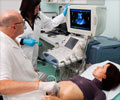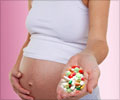Caring for HIV Babies
Care During Pregnancy and after Childbirth
During pregnancy the mother who is HIV positive should ensure that she eats balanced diet. Undernourished mothers have a higher chance of infecting their babies.
Mothers should also
Having a
A course of antibiotics or intravenous anti-retroviral therapy is recommended before a caesarean section.
The cord is clamped and the baby is washed as quickly as possible.
For 4-6 weeks after birth, the baby is orally administered anti-retroviral drugs.
Other methods recommended to reduce the risk to babies include:
- Using procedures such as, fetal-scalp blood sampling, amniocentesis or rupturing the membranes which facilitates the mixing of the fetal blood with that of the mother is avoided.
- Avoidance of Breast feeding.
Talking to the doctor and other members of the health care group is an excellent way to harness support and to make decisions on the future. It is important to remember that the baby cannot be taken away from the mother if she is tested positive for HIV. With a little extra support and care the affected woman can cope with the situation, deliver her baby and care for it.
Dealing with HIV Babies
HIV babies appear to be quite normal at birth, but approximately 15 percent of untreated babies develop grave symptoms or die during the first year of their life.
At present more than 95 percent of children who have been treated for HIV survive to at least 16 years.
Babies born to HIV positive women should be screened within 48 hours of birth, a move that helps to detect about 40 percent of infected newborns. The test is generally repeated.
An AIDS-infected child is more prone to infection and has increased risk for serious illness such as pneumonia. However early detection and treatment usually can help in the effective management of the disease. The U.S. Public Health Service recommends that a baby born to an HIV-positive woman be subjected to treatment starting from four to six weeks of age with anti-pneumonia drugs.
Babies who are HIV-infected should be administered routine immunizations in addition to some extra ones. The chicken pox vaccine is however, usually recommended for children with no symptoms or for those with mild ones.
Preventing AIDS in Pregnant Women
Some of the preventive steps that pregnant women should adopt to prevent AIDS:
- Avoid using infected Needles, razors or other contaminated items.
- Avoid using or coming in contact with infected blood, blood products or body fluids.
- Avoid sexual contact with infected person.
- Use condoms if deemed necessar.













